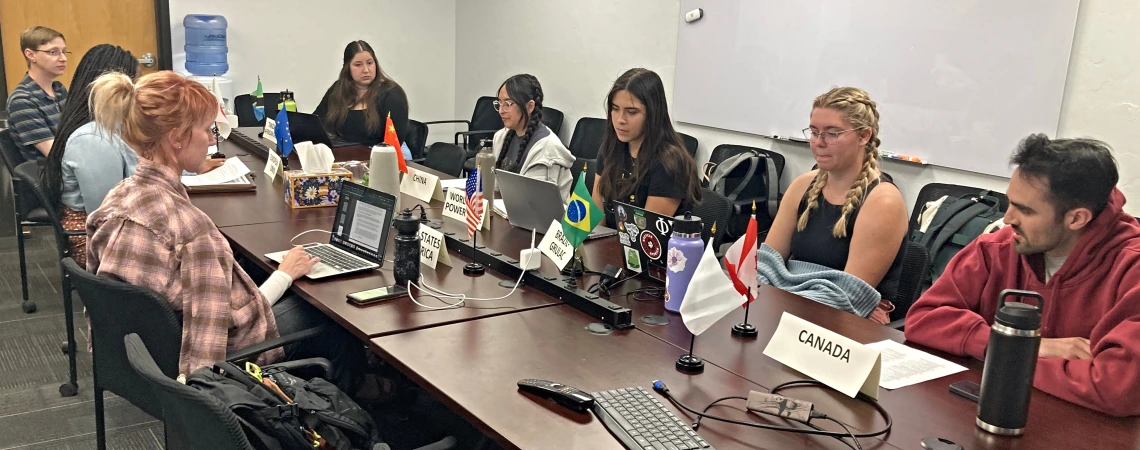Science Diplomacy Students Learn Strategies for Conflict Resolution

Students in ENGR 495A / 595A, "Science, Health, and Engineering Policy and Diplomacy" gather around a conference table to simulate a multinational negotiation.
Hassan Vafai
Students in the University of Arizona's ENGR 495A / 595A course, Science, Health, and Engineering Policy and Diplomacy, which is open to all majors, participated last week in an experiential learning simulation known as The Mercury Game.
Developed in 2014 at the Massachusetts Institute of Technology, the scenario assigns students roles representing individual nations, multinational collectives, and non-governmental organizations with varied interests in the question at hand: what to do about global mercury contamination, which occurs from various sources and poses health and environmental concern across national boundaries. Students must work within their roles' constraints to empathize with different national interests and try to find a solution that is acceptable to all parties involved.
The U of A's unique class brings together students from vastly varied backgrounds and majors to bridge science, technology, engineering, and mathematics (STEM) and health disciplines with policy and diplomacy initiatives. Experiential learning opportunities throughout the course, including the Mercury Game, teach students about real-world multinational negotiation processes, science translation, and compassionate communication – skills which they can apply toward interdisciplinary teamwork, compromise, and leadership in any career.

